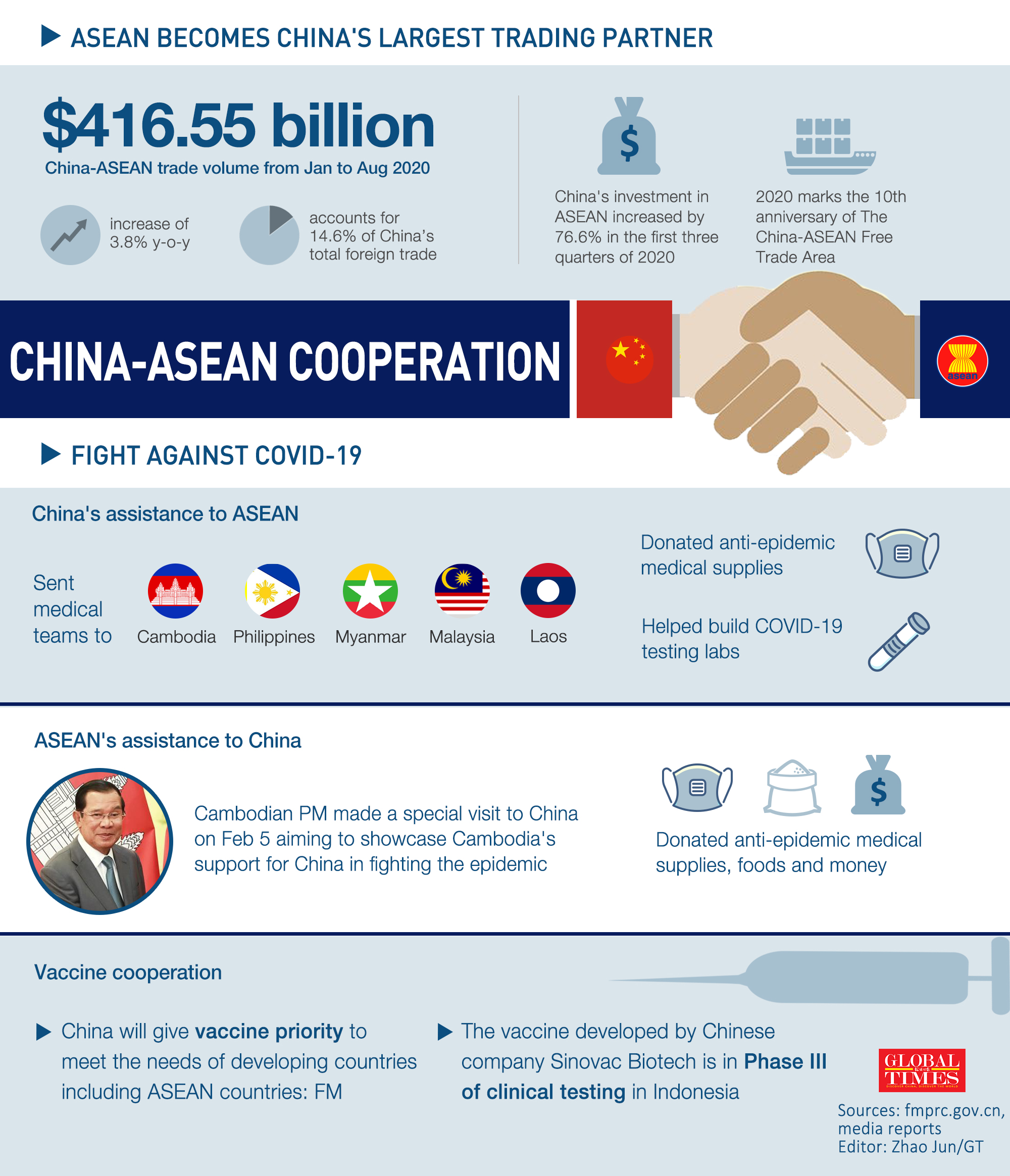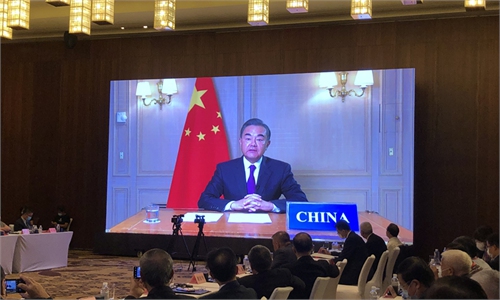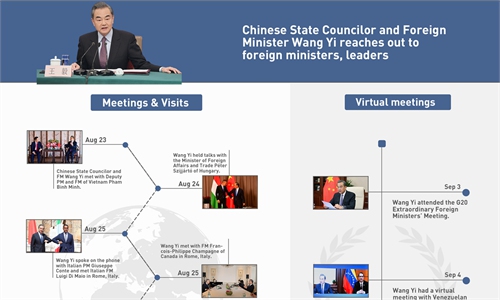East Asian cooperation 'stimulant,' 'role model' for world development: observers
Expected signing of RCEP 'accelerator' in region

Infographic: Global Times
Cooperation between China and East Asian countries, the countries that emerged from the pandemic the strongest, will serve as the "stimulant" for the development for other economically affected countries, with the possible signing of the Regional Comprehensive Economic Partnership (RCEP); and as the "role model" for international cooperation, disrupted by rising unilateralism, observers said before Chinese Premier Li Keqiang attends a series of leaders' meetings on East Asian cooperation from Thursday to Sunday.
At the invitation of Prime Minister Nguyen Xuan Phuc of Vietnam, Li will attend the 23rd China-ASEAN (10+1) leaders' meeting, the 23rd ASEAN-China, Japan and South Korea (10+3) leaders' meeting, the 15th East Asia Summit, the fourth Regional Comprehensive Economic Partnership (RCEP) leaders' meeting, and the ASEAN Business and Investment Summit via video link from Thursday to Sunday, Wang Wenbin, spokesperson of the Chinese Foreign Ministry, said on Tuesday.
This is the latest high-level exchanges between China and ASEAN countries, after Chinese State Councilor and Foreign Minister Wang Yi and Yang Jiechi, a member of the Political Bureau of the Communist Party of China Central Committee and director of the Office of the Central Commission for Foreign Affairs, visited ASEAN countries.
Wang said that against such a backdrop, China hopes the upcoming meetings will focus on the two major themes of maintaining solidarity against the virus and seeking shared development to safeguard stability and prosperity in East Asia.
The RCEP is expected to be signed during the 4th RCEP leaders' meeting, and the relevant paperwork has been finished, Assistant Minister of Commerce Li Chenggang told a press conference on Wednesday.
Under the leadership of ASEAN, all parties involved in the RCEP have pushed forward talks in various areas despite the impact of the coronavirus, and the talks have been completed.
The RCEP, when signed, will be the largest free trade agreement (FTA) in the world - covering the largest number of people, Li Chenggang said.
The RCEP, initiated by ASEAN in 2012, is a proposed FTA between the bloc's 10 members and its six FTA partners - China, Japan, South Korea, Australia, New Zealand and India.
Signing the RCEP serves as a "stimulant" for global economic cooperation and development, and helps those countries cooperate when shielding outside influence. It also pushes forward the new transition of East Asian's economic cooperation, Chen Xiangmiao, an assistant research fellow at the National Institute for South China Sea Studies, told the Global Times. He noted the deal will be the "accelerator" of regional growth.
Despite global downward pressure, China-ASEAN trade and investment have witnessed remarkable growth. Chinese Ambassador to ASEAN Deng Xijun said that in the first half of the year, trade in goods between China and ASEAN reached 2.09 trillion yuan ($298 billion), representing a 5.6 percent increase. ASEAN has overtaken the European Union as China's largest trading partner for the first time this year, the Xinhua News Agency reported in September.
Anti-epidemic, vaccine development and regional cooperation in medics and economy could also be the hot topics during the meetings, Zhuang Guotu, head of Xiamen University's Southeast Asian Studies Center, told the Global Times on Wednesday.
Zhuang noted that an agreement on fighting pandemic between China and East Asian countries, which emerged the strongest from the pandemic, will also help regional countries shake off the impact of COVID-19 as soon as possible.
Chen said China and Asian countries' cooperation model under the shadow of COVID-19, such as opening a "green channel," could also provide an example for the post-pandemic world.
Wang said in September that when China-developed COVID-19 vaccines are put into use, China would prioritize ASEAN countries' need for the vaccines, and enhance the sharing of information and R&D of the vaccines with those countries.
US antagonism toward China in this region won't be altered, no matter who takes office at the White House, said Chen, noting that Biden, who is likely to follow Barack Obama's policy of multilateralism, will win over certain ASEAN allies of the US. "But the trend won't stop ASEAN members' willingness to accelerate their cooperation with China."
"We will see less close range of conflicts in this region under Biden's US, which would give the region a buffer period for peaceful cooperation and development," Chen said.



